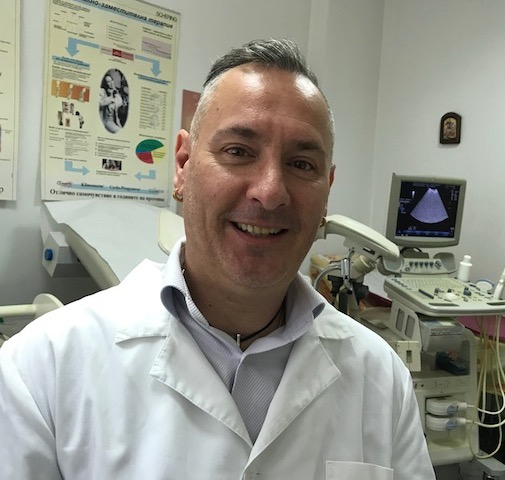A variable disorder that is marked especially by amenorrhea, hirsutism, obesity, infertility, and ovarian enlargement and is usually initiated by an elevated level of luteinizing hormone, androgen, or estrogen which results in an abnormal cycle of gonadotropin release by the pituitary gland —abbreviation PCOS — called also polycystic ovary disease, polycystic ovary syndrome, polycystic ovary disease, Stein-Leventhal syndrome.
The exact cause of PCOS is unknown. Early diagnosis and treatment along with weight loss may reduce the risk of long-term complications such as type 2 diabetes and heart disease.
Symptoms:
Symptoms of PCOS may begin shortly after puberty, but can also develop during the later teen years and early adulthood. Because symptoms may be attributed to other causes or go unnoticed, PCOS may go undiagnosed for some time.
People with PCOS typically have irregular or missed periods as a result of not ovulating. Although some people may develop cysts on their ovaries, many people do not.
Other symptoms include:
- Weight gain. About half of people with PCOS will have weight gain and obesity that is difficult to
- manage.
- Fatigue. Many people with PCOS report increased fatigue and low energy. Related issues such as
- poor sleep may contribute to the feeling of fatigue.
- Unwanted hair growth (also known as hirsutism). Areas affected by excess hair growth may
- include the face, arms, back, chest, thumbs, toes, and abdomen. Hirsutism related to PCOS is due to
- hormonal changes in androgens.
- Thinning hair on the head. Hair loss related to PCOS may increase in middle age.
- Infertility. PCOS is a leading cause of female infertility. However, not every woman with PCOS is
- the same. Although some people may need the assistance of fertility treatments, others are able to
- conceive naturally.
- Acne. Hormonal changes related to androgens can lead to acne problems. Other skin changes such as
- the development of skin tags and darkened patches of skin are also related to PCOS.
- Mood changes. Having PCOS can increase the likelihood of mood swings, depression, and anxiety.
- Pelvic pain. Pelvic pain may occur with periods, along with heavy bleeding. It may also occur when
- a woman isn’t bleeding.
- Headaches. Hormonal changes prompt headaches.
- Sleep problems. People with PCOS often report problems such as insomnia or poor sleep. There are
- many factors that can affect sleep, but PCOS has been linked to a sleep disorder called sleep apnea. With sleep apnea, a person will stop breathing for short periods of time during sleep.
- Diagnosis:
- There's no test to definitively diagnose PCOS. Your doctor is likely to start with a discussion of your medical history, including your menstrual periods and weight changes. A physical exam will include checking for signs of excess hair growth, insulin resistance and acne.
- Your doctor might then recommend:
- A pelvic exam. The doctor visually and manually inspects your reproductive organs for masses,
- growths or other abnormalities.
- Blood tests. Your blood may be analyzed to measure hormone levels. This testing can exclude
- possible causes of menstrual abnormalities or androgen excess that mimics PCOS. You might have
- additional blood testing to measure glucose tolerance and fasting cholesterol and triglyceride levels.
- An ultrasound. Your doctor checks the appearance of your ovaries and the thickness of the lining of your uterus. A wandlike device (transducer) is placed in your vagina (transvaginal ultrasound). The
- transducer emits sound waves that are translated into images on a computer screen.
- If you have a diagnosis of PCOS, your doctor might recommend additional tests for complications. Those tests can include:
- Periodic checks of blood pressure, glucose tolerance, and cholesterol and triglyceride levels
- Screening for depression and anxiety
- Screening for obstructive sleep apnea
There is no cure for polycystic ovary syndrome, but there are lifestyle and medical treatments to deal with the symptoms. You and your doctor should talk about what your goals are so you can come up with a treatment plan. For example, if you want to get pregnant and are having trouble, then your treatment would focus on helping you conceive. If you want to tame PCOS-related acne, your treatment would be geared toward skin problems.
Complications:
Complications of PCOS can include:
- Infertility
- Gestational diabetes or pregnancy-induced high blood pressure
- Miscarriage or premature birth
- Nonalcoholic steatohepatitis — a severe liver inflammation caused by fat accumulation in the liver
- Metabolic syndrome — a cluster of conditions including high blood pressure, high blood sugar, and
- abnormal cholesterol or triglyceride levels that significantly increase your risk of cardiovascular
- disease
- Type 2 diabetes or prediabetes
- Sleep apnea
- Depression, anxiety and eating disorders
- Abnormal uterine bleeding
- Cancer of the uterine lining (endometrial cancer)
Obesity is associated with PCOS and can worsen complications of the disorder.
